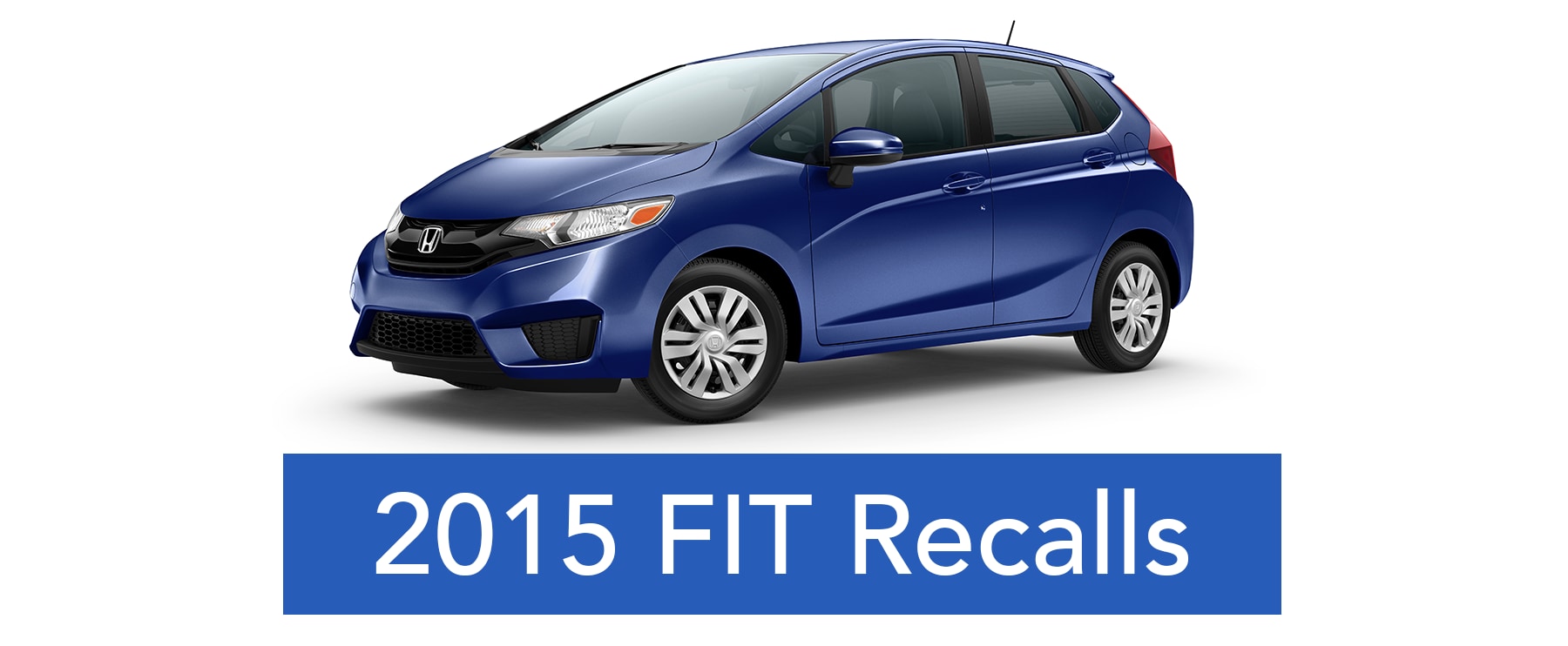So here's the deal—Honda recalls have been making headlines lately, and if you're a proud owner of a Honda vehicle, this is something you need to pay attention to. Whether it's a faulty airbag, braking issues, or even electrical problems, these recalls are more than just inconveniences—they're about your safety on the road. Let's dive into the nitty-gritty and find out exactly what's going on with Honda and why these recalls matter to you.
Now, I know what you're thinking—"Another recall? Really?" But hear me out. Car manufacturers issuing recalls isn't exactly breaking news in the automotive world. However, when it comes to Honda, one of the most trusted names in the industry, it raises some eyebrows. So, we're gonna break it down for you, step by step, and give you all the info you need to stay informed and safe.
Before we get too deep into the details, let's address the elephant in the room: why should you care? Simple—your safety and the safety of your loved ones depend on it. Recalls aren't just about fixing minor glitches; they're about ensuring that your vehicle is as reliable and secure as possible. Stick around, and we'll walk you through everything from the history of Honda recalls to what you should do if your car is affected.
Read also:Lyle Lovetts Health Mystery What Disease Does Lyle Lovett Have
What Are Honda Recalls All About?
Alright, let's start with the basics. A recall happens when a car manufacturer identifies a defect in one of its vehicles that could pose a risk to safety or performance. For Honda, this means pulling back certain models to fix the issue before it becomes a bigger problem. And let's be honest—nobody likes hearing that their car has been flagged for a recall, but it's better to know sooner rather than later.
Over the years, Honda has issued recalls for a wide range of issues, from faulty Takata airbags to electrical system malfunctions. Some of these recalls have been massive, affecting millions of vehicles worldwide. But don't panic just yet—we're here to explain what's going on and what you can do about it.
Why Do Recalls Happen?
Now, you might be wondering why recalls happen in the first place. Well, there are a few reasons:
- Manufacturing defects: Sometimes, mistakes happen on the production line, leading to issues with specific components.
- Supplier problems: Parts supplied by third-party companies, like Takata airbags, can have flaws that lead to widespread recalls.
- Regulatory requirements: Governments and safety organizations set strict standards, and if a vehicle doesn't meet those standards, it may need to be recalled.
It's important to remember that recalls aren't necessarily a sign of a poorly made car. They're often the result of identifying and addressing potential problems before they become serious hazards.
A Brief History of Honda Recalls
Honda has been around for decades, and during that time, they've had their fair share of recalls. Let's take a quick trip down memory lane to see some of the biggest ones:
In 2014, Honda issued a massive recall for vehicles equipped with Takata airbags. These airbags were found to explode with excessive force, sending shrapnel flying inside the car. Millions of vehicles worldwide were affected, making it one of the largest automotive recalls in history. Fast forward to 2021, and Honda was back in the headlines with another recall—this time for issues with the electrical system in certain models.
Read also:Sone 385 Unveiling The Powerhouse Of Modern Music
While these recalls might seem alarming, it's worth noting that Honda has always been proactive in addressing these issues. They work closely with regulatory bodies to ensure that their vehicles meet the highest safety standards.
Which Honda Models Are Affected?
So, you're probably wondering if your Honda is on the list. Here's a quick rundown of some of the models that have been affected by recent recalls:
- Honda Accord
- Honda Civic
- Honda CR-V
- Honda Odyssey
Of course, not every model or year is affected, so it's important to check with Honda directly to see if your specific vehicle is included in the recall. You can do this by visiting their official website or contacting your local dealership.
How Do Honda Recalls Work?
When Honda identifies a potential issue, they notify owners through official recall notices. These notices typically include details about the problem, the affected models, and what steps you need to take. Here's how the process usually works:
First, Honda sends out a recall letter to registered owners of the affected vehicles. This letter will explain the issue and provide instructions on what to do next. In most cases, you'll be asked to bring your car to a dealership for a free repair or replacement of the defective part. It's important to act quickly when you receive a recall notice, as delaying the repair could put you and your passengers at risk.
Now, here's the good news—Honda covers the cost of the repair, so you won't have to pay a dime. All you need to do is schedule an appointment with your local dealership and let the professionals handle the rest.
What Should You Do If Your Car Is Recalled?
Alright, let's say you've just received a recall notice in the mail. Here's what you should do:
- Read the recall notice carefully to understand the issue and the steps you need to take.
- Contact your local Honda dealership to schedule an appointment for the repair.
- Bring your car to the dealership on the scheduled date and leave it in the hands of the experts.
It's also a good idea to keep a record of the recall and any correspondence with Honda or the dealership. This can come in handy if you ever need to reference the recall in the future.
Common Issues in Honda Recalls
While every recall is unique, there are a few common issues that tend to pop up in Honda recalls. Here's a look at some of the most frequent problems:
Takata airbags, as we mentioned earlier, have been a major issue for Honda and other manufacturers. These airbags can deploy with excessive force, causing metal fragments to fly into the cabin. Another common issue is electrical system malfunctions, which can lead to problems with the engine, brakes, or other critical components. And let's not forget about braking system issues, which can compromise your ability to stop safely.
It's worth noting that Honda takes these issues very seriously and works hard to address them as quickly as possible. They invest heavily in research and development to ensure that their vehicles are as safe and reliable as possible.
How to Stay Informed About Honda Recalls
Staying informed about Honda recalls is easier than you might think. Here are a few tips to help you stay up to date:
- Register your vehicle with Honda so they can send you recall notices directly.
- Check the National Highway Traffic Safety Administration (NHTSA) website for the latest recall information.
- Follow Honda's official social media channels for updates and announcements.
By staying informed, you can ensure that your vehicle is always in top condition and that you're aware of any potential issues before they become serious problems.
The Impact of Honda Recalls on Owners
So, how do Honda recalls affect you as a car owner? Let's break it down:
First and foremost, recalls can be inconvenient. You might have to take time out of your busy schedule to bring your car to the dealership for repairs. But trust me, it's worth it. The peace of mind that comes with knowing your car is safe and reliable is priceless. Plus, Honda covers the cost of the repairs, so you won't have to dip into your wallet.
Another thing to consider is the potential impact on your vehicle's resale value. While recalls themselves don't necessarily affect resale value, unresolved issues can. That's why it's so important to address any recalls promptly and keep a record of the repairs.
How to Protect Yourself as a Honda Owner
Being a proactive Honda owner means taking steps to protect yourself and your vehicle. Here's how you can do that:
- Regularly check for recalls and address them as soon as possible.
- Keep up with routine maintenance to ensure your car is in top condition.
- Stay informed about Honda's latest developments and announcements.
By staying on top of recalls and maintenance, you can ensure that your Honda remains a safe and reliable mode of transportation for years to come.
Conclusion: Take Action and Stay Safe
Alright, let's wrap this up. Honda recalls might not be the most exciting topic, but they're incredibly important when it comes to your safety and the safety of your passengers. By staying informed and addressing recalls promptly, you can ensure that your Honda remains a dependable and secure vehicle.
So, here's what you need to do next:
- Check if your Honda is affected by any current recalls.
- Follow the steps outlined in the recall notice to get your car repaired.
- Stay informed about future recalls and Honda's latest developments.
And don't forget to share this article with your fellow Honda owners. The more people know about recalls, the safer our roads will be. Thanks for reading, and stay safe out there!
Table of Contents
- What Are Honda Recalls All About?
- Why Do Recalls Happen?
- A Brief History of Honda Recalls
- Which Honda Models Are Affected?
- How Do Honda Recalls Work?
- What Should You Do If Your Car Is Recalled?
- Common Issues in Honda Recalls
- How to Stay Informed About Honda Recalls
- The Impact of Honda Recalls on Owners
- How to Protect Yourself as a Honda Owner


